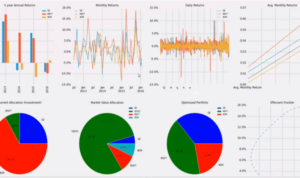Get ready to dive into the world of Tax planning strategies, where we break down the ins and outs of how to save big on your taxes. From short-term to long-term tactics, we’ve got you covered with all the tips and tricks you need to know. So buckle up and let’s roll!
In the following paragraphs, we’ll explore different types of tax planning strategies, whether you’re an individual looking to save some cash or a business aiming to boost your bottom line.
Overview of Tax Planning Strategies
Tax planning is crucial for individuals and businesses to optimize their financial situation by minimizing tax liabilities. By strategically planning ahead, taxpayers can take advantage of various deductions, credits, and exemptions to legally reduce the amount of taxes they owe.
The Importance of Tax Planning
Effective tax planning helps individuals and businesses manage their finances more efficiently, ensuring they keep more of their hard-earned money. It also allows taxpayers to plan for future expenses and investments by understanding their tax obligations in advance.
Common Objectives of Tax Planning
- Minimize tax liability: By utilizing deductions and credits, taxpayers can reduce the amount of taxes they owe to the government.
- Maximize tax savings: Strategic tax planning can help individuals and businesses save money that can be reinvested or used for other financial goals.
- Ensure compliance: By staying updated on tax laws and regulations, taxpayers can avoid penalties and legal issues related to tax evasion.
Benefits of Implementing Effective Tax Planning Strategies
- Increased savings: By taking advantage of tax deductions and credits, individuals and businesses can keep more money in their pockets.
- Financial stability: Planning for taxes allows for better financial management and budgeting, ensuring long-term stability and growth.
- Strategic decision-making: Understanding tax implications can help in making informed decisions related to investments, retirement planning, and estate management.
Types of Tax Planning Strategies

When it comes to tax planning, there are various strategies that individuals and businesses can implement to minimize their tax liabilities. Two common approaches are short-term and long-term tax planning, each with its own benefits and considerations.
Short-term vs Long-term Tax Planning Strategies
Short-term tax planning involves making immediate decisions to reduce taxes for the current tax year. This may include strategies such as accelerating deductions, deferring income, or taking advantage of tax credits that are available for a limited time.
In contrast, long-term tax planning focuses on creating a sustainable tax strategy that extends beyond the current year. This may involve setting up retirement accounts, creating trusts, or restructuring business entities to minimize taxes over the long term.
Tax Avoidance vs Tax Evasion Tactics
- Tax Avoidance: Tax avoidance is the legal practice of arranging one’s financial affairs in a way that minimizes tax liability. This can be done by taking advantage of tax deductions, credits, and exemptions provided by the tax laws.
- Tax Evasion: Tax evasion, on the other hand, is illegal and involves intentionally misrepresenting or concealing income to avoid paying taxes. This can lead to severe penalties and legal consequences.
Role of Tax Credits, Deductions, and Exemptions
When it comes to tax planning, utilizing tax credits, deductions, and exemptions can significantly impact the amount of taxes owed. Tax credits directly reduce the amount of tax owed, while deductions lower taxable income. Exemptions, on the other hand, allow for certain amounts of income to be excluded from taxation altogether.
Tax Planning for Individuals
When it comes to tax planning for individuals, there are several key considerations that can help maximize tax savings and minimize liabilities. Integrating retirement planning into tax strategies can also have a significant impact, as well as understanding how major life events such as marriage, having children, or buying a home can affect tax planning.
Key Considerations for Individuals
- Understand your tax bracket and how different types of income are taxed.
- Take advantage of tax deductions and credits that you qualify for.
- Consider contributing to tax-advantaged retirement accounts like 401(k)s or IRAs.
- Plan for capital gains and losses to minimize tax implications.
Integration of Retirement Planning
- Contributing to retirement accounts can lower your taxable income and grow your savings tax-deferred.
- Roth IRAs offer tax-free withdrawals in retirement, providing flexibility in tax planning.
- Utilize catch-up contributions if you are behind on retirement savings to maximize tax benefits.
Impact of Life Events
- Marriage can change your filing status and potentially lower your tax burden or increase tax benefits.
- Having children can qualify you for tax credits such as the Child Tax Credit or the Earned Income Tax Credit.
- Buying a home can lead to deductions for mortgage interest and property taxes, reducing taxable income.
Tax Planning for Businesses
When it comes to tax planning for businesses, there are specific strategies tailored for small businesses that can help maximize savings and minimize tax liabilities.
Importance of Structuring a Business for Tax Efficiency
Structuring a business for tax efficiency is crucial in ensuring that the business pays the least amount of taxes while remaining compliant with tax laws. By choosing the right business entity, such as a sole proprietorship, partnership, corporation, or LLC, businesses can take advantage of different tax benefits and deductions.
- Choosing the right business entity can impact the way income is taxed, the level of liability protection, and the ease of compliance with tax laws.
- Utilizing tax credits and deductions specific to certain business structures can result in significant tax savings.
- Properly separating personal and business expenses can help avoid tax issues and audits.
Impact of Changes in Tax Laws on Business Tax Planning Strategies
Changes in tax laws can have a significant impact on business tax planning strategies, requiring businesses to adapt and adjust their approaches accordingly.
- Changes in tax rates can affect the overall tax liability of a business and may require adjustments to income reporting and deductions.
- New tax incentives or credits introduced in tax laws can create opportunities for businesses to reduce their tax burden.
- Understanding and staying updated on tax law changes is essential to ensure compliance and take advantage of available tax-saving opportunities.






